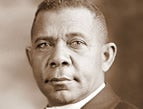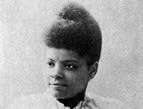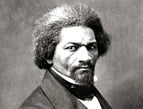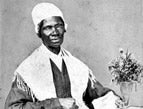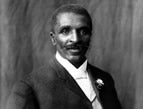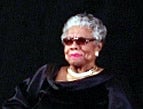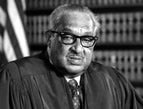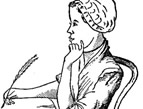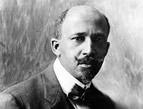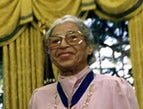| timeline data |
| 1492 |
Pedro Alonso Nino, a black man from Spain, serves as a navigator with Christopher Columbus on his first journey. |
| 1501 |
Spain permits African slavery in its colonies. |
| 1502 |
Black colonists helped Nicolas de Ovando form the first Spanish settlement on Hispaniola. |
| 1513 |
A black slave named Nuflo de Olano is present when Nunez de Balboa sights the Pacific Ocean. |
| 1518 |
King Charles I of Spain allows the direct transport of slaves from Africa to the American colonies. From 1518 until the abolition of the slave trade in 1870, at least 10 million Africans are forcibly brought to the Americas. |
| 1519 |
Blacks serve with Hernan Cortes when he conquers Mexico. |
| 1527 |
A black man named Estebanico is one of the survivors of Panfilo de Narvaez's expedition to discover Florida. |
| 1540 |
A black man named Juan Valiente leads Spanish troops in a series of battles against the Araucanian Indians of Chile. |
| 1619 |
The first blacks arrive at the Jamestown Colony in Virginia -- they are both free and indentured servants. |
| 1663 |
The Royal African Company is established in Britain, engaging extensively in the slave trade. |
| 1772 |
A humanitarian named Granville Sharp persuades the British courts to declare that slavery could not exist in England. |
| 1775 |
The Governor of Virginia promises freedom to any slaves owned by Patriot masters who join the Loyalist forces. |
| 1776 |
The American Declaration of Independence declares that "We hold these truths to be self-evident, that all men are created equal, that they are endowed by their Creator with certain unalienable Rights, that among these are Life, Liberty and the pursuit of Happiness." |
| 1776 |
British philosopher and economist Adam Smith declares in The Wealth of Nations that slavery was uneconomical because plantation systems were wasteful and slaves cost more to maintain than free laborers. |
| 1778 |
General George Washington approves the recruitment of Black slaves for the Continental Army. Approximately 5,000 Blacks serve in the Continental Army during the war. |
| 1787 |
Thomas Clarkson, Granville Sharp, and Josiah Wedgwood form a society for the abolition of the slave trade. |
| 1790 |
Ninety percent of the black population in the United States is enslaved at the time of the census. |
| 1792 |
In response to the declaration by Secretary of State Thomas Jefferson that Blacks were mathematically inferior, Black scientist Benjamin Banneker sends a copy of his respected almanac, and requests aid in improving the lot of American Blacks. |
| 1793 |
French Commissioner, Leger Felicite Sonthonax, emancipates all slaves and admits them to full citizenship. |
| 1794 |
The French government ratifies emancipation in France and extends it to all French colonies. |
| 1792 |
Denmark outlaws slavery. |
| 1800 |
African American slave Gabriel Prosser leads an unsuccessful revolt in Richmond, Virginia. |
| 1802 |
Napoleon Bonaparte revokes emancipation of slaves in French colonies. |
| 1804 |
Slaves led by Jean Jacques Dessalines win independence from France in Haiti, which becomes the first independent country in the Americas ruled by blacks. |
| 1807 |
The British Parliament pass an act prohibiting British subjects from engaging in the slave trade. |
| 1808 |
The United States bans the importation of new slaves. |
| 1811 |
The British declare slave trading a felony, punishable by exile to a penal colony for all British subjects or foreigners caught trading in British possessions. |
| 1815 |
Britain assumes responsibility for abolishing the transatlantic slave trade, partly to protect its sugar colonies. |
| 1815 |
Portugal accepts 750,000 pounds to restrict the trade to Brazil. |
| 1815 |
Black ship owner Paul Cuffee favors a return to Africa for freed slaves and transports a group of free blacks to Sierra Leone. |
| 1816 |
Under the leadership of Richard Allan, blacks establish the African Methodist Episcopal Church. |
| 1817 |
Spain accepts 400,000 pounds to abandon the train to Cuba, Puerto Rico, and Santo Domingo. |
| 1817 |
The American Colonization Society is formed with a desire to return free blacks to Africa. This move is opposed by black representatives like Richard Allen who does not want to desert enslaved fellow blacks. |
| 1818 |
Holland and France abolish the slave trade. |
| 1818 |
Frederick Douglass is born. |
| 1822 |
Freedman Denmark Vesey plans a slave uprising in South Carolina which is discovered by authorities. He is hung for plotting to overthrow slavery. |
| 1822 |
The American Colonization Society establishes a colony in Liberia, Africa for freed blacks. |
| 1823 |
The British Anti-Slavery Society forms. |
| 1824 |
Slave trading is declared tantamount to piracy, subject to the penalty of death (until 1837). |
| 1827 |
The black newspaper Freedom's Journal is founded promoting the determination of blacks to decide their own destiny. |
| 1829 |
An attack on the Cincinnati black community is carried out by a white mob who resented competition from blacks for jobs. |
| 1833 |
Canada abolishes slavery. |
| 1833 |
Abolitionist Williams Lloyd Garrison establishes the American Anti-Slavery Society. |
| 1839 |
The American and Foreign Anti-Slavery Society breaks off from Garrison's American Anti-Slavery Society. |
| 1840 |
The Liberty Party is created by Abolitionists who believed in political action to further antislavery goals. |
| 1841 |
Former President John Quincy Adams defends the right of the accused in the Amistad Supreme Court case to fight to regain their freedom. The Court decides in favor of the Africans, and they are returned to their homeland. |
| 1847 |
Former slave, Frederick Douglass, joined with Martin Delaney, a pioneer black nationalist, to establish an independent black journal, the North Star. |
| 1850 |
The Fugitive Slave Act is passed ordering that fugitives from labor (slaves) must be sent back to the South if captured in the North. |
| 1854 |
Two thousand soldiers are required to escort escaped slave Anthony Burns to a ship returning him to the South. |
| 1856 |
Booker T. Washington is born. |
| 1857 |
The Supreme Court hands down the Dred Scott Case, ruling that all people of African ancestry -- slaves as well as those who were free -- could never become citizens of the United States and therefore could not sue in federal court. |
| 1858 |
Abraham Lincoln encouraged abolitionists with his "House divided" speech, which called for the eventual end of slavery achieved gradually and voluntarily with compensation to slave-owners and resettlement of former slaves. |
| 1859 |
Abolitionist John Brown carries out an unsuccessful attempt to incite a slave uprising in his raid on the U.S. arsenal at Harpers Ferry, Virginia. |
| 1860 |
Abraham Lincoln is elected sixteenth President of the United States. After his election, seven slave states left the Union to form the Confederate States of America, and four more joined when hostilities began between the North and South. |
| 1862 |
As northern casualties mount, Congress authorizes the president to recruit and use black troops. |
| 1863 |
President Abraham Lincoln issues the Emancipation Proclamation on January 1, as the nation approaches its third year of civil war. The proclamation declares "that all persons held as slaves" within the rebellious states "are, and henceforward shall be free." |
| 1865 |
On April 9, General Robert E. Lee surrenders his Army of Northern Virginia to General Ulysses S. Grant. |
| 1865 |
On April 14, President Abraham Lincoln is assassinated by southern sympathizer John Wilkes Booth. |
| 1865 |
On June 2 nd , the American Civil War ends when forces under Confederate General Edmund Kirby Smith surrender at Galveston, Texas, becoming the last to do so. |
| 1865 |
With the ratification of the Thirteenth Amendment to the U.S. Constitution in December, slavery is officially abolished in all areas of the United States. |
| 1865 |
The Freedmen's Bureau is established by the Federal War Department to assume responsibility for the welfare of freed slaves. |
| 1865 |
After the war, southerners create Black Codes, which serve as a way to control and inhibit the freedom of ex-slaves. These codes control almost all aspects of life, and prohibited African-Americans from the freedoms that had been won in the war. |
| 1866 |
Congress passes the Civil Rights act of 1866, which is subsequently vetoed by Andrew Johnson. Congress overrides his veto and immediately passes the 14th Amendment due in part to Johnson's resistance. |
| 1866 |
The first branch of the Ku Klux Klan is established in Pulaski, Tennessee. A year later a general organization of local Klans are established in Nashville. |
| 1866 |
Fisk University is founded in Nashville, Tennessee, as a liberal arts institution committed to educating the newly freed slaves. |
| 1867 |
Howard University is founded in Washington, D.C. |
| 1867 |
Augusta Institute (now Morehouse College) is established in the basement of Springfield Baptist Church in Augusta, Georgia. The school's primary purpose was to prepare black men for the ministry and teaching. |
| 1868 |
Hampton Institute (now Hampton University) is founded in Hampton, Virginia, to provide education for freedmen. |
| 1868 |
Andrew Johnson is put on trial for impeachment by the Senate for a violation of the Tenure of Office Act -- but also because of Johnson's lenient policies towards Reconstruction and his vetoes of the Freedmen's Bureau Act and the Civil Rights Act. |
| 1868 |
W.E.B. DuBois is born. |
| 1868 |
Ulysses S. Grant is elected President of the United States. |
| 1870 |
The 15 th Amendment to the Constitution grants voting rights to African-American males. |
| 1870 |
Hiram R. Revels, a politician, minister, and educator becomes the first African-American United States senator, representing the state of Mississippi. |
| 1872 |
Pinckney Benton Stewart Pinchback is the first African-American to become governor of a U.S. State. Pinchback serves as the Republican governor of Louisiana for exactly one month, from December 9, 1872 to January 9, 1873. |
| 1874 |
The Mississippi legislature elects Blache K. Bruce to the United States Senate. He is the first African-American to serve a full term in office. |
| 1877 |
Northern troops are finally withdrawn from the South. |
| 1880 |
Tuskegee University was established in 1880 by act of the Alabama State Legislature. The school's first President, Dr. Booker T. Washington, officially opened the Normal School for Colored Teachers on July 4, 1881. |
| 1884 |
Mary Church Terrell graduates with a Bachelor's Degree from Oberlin College, one of the first African-American women awarded a college degree. She becomes nationally known both for her support of women's suffrage and her opposition to racial segregation. |
| 1890 |
Black and white farmers join together to build a strong Populist alliance, but this coalition falls apart after 1896 as a result of intimidation and white susceptibility to racist Democratic appeals. |
| 1890 |
More than 1000 blacks are put to death by lynching during the 1890s. |
| 1895 |
African-American spokesman and leader Booker T. Washington speaks before a predominantly white audience at the Cotton States and International Exposition in Atlanta. His Atlanta Compromise address, as it came to be called, claims that blacks would content itself with living by the productions of our hands. The speech is both praised and denounced. |
| 1896 |
The Supreme Court hands down the infamous Plessy v. Ferguson case approving separate public facilities for blacks in America. |
| 1900 |
Although still overwhelmingly concentrated in the South, almost one-fourth of all blacks now live in urban areas. Drawn by economic opportunities available in the cities, blacks face considerable discrimination from white workers. |
| 1900 |
James and Rosamond Johnson write the song "Lift Ev'ry Voice and Sing" to mark Abraham Lincoln's birthday. The song becomes immensely popular in the black community and comes to be known as the "Negro National Anthem." |
| 1902 |
Scott Joplin published his famous ragtime composition The Entertainer. |
| 1905 |
The Niagara Movement is launched by W.E.B. DuBois, renouncing Booker T. Washington's accommodation policies and calling for full manhood suffrage. |
| 1906 |
Under Theodore Roosevelt's administration, James Weldon Johnson is appointed U.S. Ambassador to Venezuela. Later, he is appointed Ambassador to Nicaragua (1909) and the Azores (1912). |
| 1909 |
The National Association for the Advancement of Colored People, (NAACP), is founded by both black and white leaders to improve the conditions under which black Americans lived at that time. |
| 1914 |
W.C. Handy, "the Father of the Blues" having single-handedly introduced a new style of music to the world, publishes his most famous composition, "Saint Louis Blues". |
| 1916 |
Marcus Garvey establishes the Universal Negro Improvement Association (UNIA). By 1919 he establishes the Black Star Line steamship corporation to pursue trade with Africa. |
| 1917 |
The United States enters World War I. More than 370,000 blacks served in the war. Some all-black regiments see extensive combat duty. |
| 1917 |
More than 200 blacks are killed in East St. Louis, Illinois, by a white mob. |
| 1917 |
In Houston, Texas, 63 black soldiers are court-martialed and 13 hanged without benefit of appeal after a black battalion rioted in reaction to white harassment. |
| 1918 |
An all African-American unit, the 369th fights in World War I under the French Flag because the United States refuses to have black soldiers in combat. On November 26, the 369 th reaches the banks of the Rhine, the first Allied unit to get there. The regiment is awarded the Croix de Guerre by France for distinguished service during the war. |
| 1919 |
During World War I, jazz and blues begin to be played in northern cities. |
| 1919 |
During the "Red Summer" of 1919, anti-black riots occurred in Longview, Texas; Washington, D.C.; Chicago, Illinois; Knoxville, Tennessee; and Omaha, Nebraska. |
| 1920 |
The 19th Amendment to the Constitution grants voting rights to all women. |
| 1920 |
A major cultural movement, the Harlem Renaissance, emerges promoting identification with the lifestyles of the black poor. |
| 1922 |
Louis Armstrong moves from New Orleans to Chicago to play with King Oliver's jazz band. Jelly Roll Morton begins arranging the previously spontaneous jazz pieces, preparing the way for big band leaders such as Duke Ellington and Fletcher Henderson. |
| 1927 |
Scientist and Tuskegee professor George Washington Carver invents a process for producing paints and stains from soybeans, for which three separate patents are issued. His work in developing industrial applications from agricultural products derives 118 products, including the discovery of plastic, a rubber substitute, and more than 500 dyes and pigments, from 28 different plants. |
| 1929 |
The Harlem Renaissance looses momentum after the country plunges into the Great Depression. |
| 1929 |
Martin Luther King, Jr. is born. |
| 1936 |
Most black voters move from the Republican to the Democratic Party to support Franklin D. Roosevelt. |
| 1936 |
Partly through the efforts of Eleanor Roosevelt, New Deal policies were influenced by a group of black leaders, known as the Black Cabinet. Several blacks were appointed to the Roosevelt administration, including Robert C. Weaver, an adviser in several agencies, and Mary McLeod Bethune, who was director of Negro Affairs in the National Youth Administration. |
| 1938 |
The U.S. Supreme Court orders the admission of a black man to the University of Missouri law school, pointing out that the state had failed to provide such facilities for blacks. |
| 1940 |
Scientist Charles R. Drew develops a widely used system for storing blood plasma. |
1941 |
The war against the Nazis in World War II heightened the sensitivity of whites to the dangers of racist ideas. President Roosevelt issues an executive order prohibiting racial discrimination in the defense industries and the government. |
1941 |
As in previous wars, blacks face discrimination in the armed forces. But the War Department eventually approves the training of a large number of black officers and accepts blacks to serve as pilots and in medical and engineering units. |
1941 |
Dorie Miller is awarded the Navy Cross for his heroism at Pearl Harbor, the highest honor awarded to a black serviceman in the war. |
1942 |
More than half a million blacks serve overseas in segregated units in both Europe and the Pacific theaters. |
1942 |
Nonviolent sit-ins conducted by the Congress of Racial Equality (CORE) show a new willingness of both blacks and whites to challenge racial segregation. |
1943 |
A race riot breaks out in Detroit, resulting in the deaths of 25 blacks and 9 whites before federal troops restore order. |
1945 |
Jackie Robinson is the first black man to play in the major leagues. At the same time, athletes like Jack Johnson, Joe Louis, and Jesse Owens were making major impacts on professional sports. |
1947 |
After World War II, there is a rapid increase in the number of African-Americans attending college growing from approximately 124,000 in 1947 to more than 233,000 in 1961. |
1948 |
Truman issues an executive order desegregating the armed forces. He supports a pro-civil rights policy for the Democratic Party over strong opposition by the southern Dixiecrats. |
1948 |
Harry Truman wins the presidency even though he receives only a minority of white votes. |
1950 |
Cold War era anti-communism encouraged blacks to demand that the U.S. live up to its democratic claims. |
1954 |
A unanimous Supreme Court rules in Brown v. Board of Education that separate educational facilities are inherently unequal and ordered public schools to desegregate with all deliberate speed. |
1954 |
The largest number of black men are elected to the U.S. House of Representatives since Reconstruction Augustus Hawkins of California; Adam Clayton Powell, Jr. of New York; and William L. Dawson of Illinois. |
1955 |
In Montgomery, Alabama, Rosa Parks refuses to give up her seat on a city bus to a white man and is arrested. Let by the Rev. Martin Luther King, Jr., black residents react to the arrest by organizing a bus boycott that lasts for more than a year. Federal courts declare Alabama's bus segregation laws unconstitutional. |
1957 |
Black students defied white mobs in Little Rock, Arkansas and President Eisenhower sent troops to protect their right to attend an all-white high school. |
1957 |
Martin Luther King and his supporters organize the Southern Christian Leadership Conference (SCLC). |
1957 |
President Dwight Eisenhower signs the Civil Rights Act of 1957, protecting voting rights by establishing a Civil Rights Division within the Justice Department and a U. S. Civil Rights Commission to investigate voting irregularities. |
1960 |
President Eisenhower signs the Civil Rights Act of 1960. |
1960 |
Federal court ends restrictions against voting by Blacks in Fayette County, Tennessee. |
1960 |
Black college students begin widespread lunch counter sit-ins protesting segregated public places throughout America. |
1961 |
The CORE-initiated Freedom Rides pushed to end segregation in facilities dependent on interstate commerce. |
1962 |
Federal troops and marshals are sent to the University of Mississippi to ensure the right of a black student to attend classes. |
1962 |
Robert Moses brings together a staff of organizers in Mississippi to register local residents as voters. |
1963 |
More than a million people protest for civil rights legislation in cities across America. |
1963 |
President John F. Kennedy sends federal troops to Birmingham, Alabama, to end racial violence. |
1963 |
President Kennedy introduces civil rights legislation designed to end segregation in public facilities. |
1963 |
On August 28, more than 200,000 protesters gather in Washington, D.C. for a peaceful demonstration, calling on Congress to pass civil rights and equal employment legislation. Dr. Martin Luther King delivers his I have a dream speech. |
1964 |
The murder of three voter registration volunteers in Mississippi leads to a major national effort by the Mississippi Freedom Democratic party to unseat the all-white Mississippi delegation at the Democratic National Convention. |
1964 |
The 24 th Amendment to the Constitution is passed, outlawing poll taxes in federal elections. |
1964 |
Civil Rights workers, James E. Chaney, Michael Schwerner, and Andrew Goodman are murdered while helping with voter registration in Mississippi. |
1964 |
The civil rights bill is passed after the assassination of President John F. Kennedy. |
1965 |
President Lyndon Johnson introduces new voting-rights legislation with is passed that summer. This new law has a dramatic effect on black voter registration the percentage of blacks registered to vote in Mississippi increases from 7 percent in 1964 to 59 percent in 1968. |
1965 |
Black Muslim leader Malcolm X is assassinated, and his view of black nationalism spread across the country after his death. |
1965 |
Major riots erupt in Los Angeles, sparking other racial conflicts in nearly every urban center in the U.S. in the following three years. |
1967 |
Boxer Muhammad Ali refuses to be drafted into the army, temporarily costing him his world championship and making him a hero to many blacks. |
1967 |
Thurgood Marshall becomes the first black man to serve on the Supreme Court. |
1968 |
President Johnson's Kerner Commission reports that the nation is moving toward two societies, one white, one black separate and unequal. |
1968 |
Dr. Martin Luther King, Jr. is assassinated in Memphis, Tennessee. |
1968 |
Robert F. Kennedy, a strong supporter of civil rights for African-Americans, is assassinated in Los Angeles, California. |
1969 |
Artist Benny Andrews organizes the Black Emergency Cultural Coalition, protesting against the inadequate representation of blacks in American art. |
1969 |
The Congressional Black Caucus is formed among black U.S. representatives. |
1970 |
During the 1970s, black mayors were elected in Cleveland, Ohio; Gary, Indiana; Newark, New Jersey; Washington, D.C.; Atlanta, Georgia; New Orleans, Louisiana; Los Angeles, California; and several other U.S. cities. |
1972 |
The National Black Political Convention of 8000 delegates marks an effort to broaden black participation in discussions of political endeavors for African-Americans. |
1972 |
Representative Shirley Chisholm, a Democrat from New York, is the first black woman to run for the presidential nomination of a major party. |
1977 |
Alex Haley's Roots is made into a television mini-series that has a profound impact on American culture. |
1984 |
The Rev. Jesse Jackson campaigns for the Democratic presidential nomination he runs again in 1988. |
1989 |
General Colin Powell becomes chairman of the Joint Chiefs of Staff. |
1989 |
The highest leadership post achieved by an African-American is House Majority Whip, held by Rep. William Gray (D-PA) . |
1990 |
Democrat L. Douglas Wilder is elected governor of Virginia. At the same time, 318 black mayors served in American cities. The number of black elected officials in the U.S. rose from 300 in 1965 to 7,480 (including 26 members of Congress) in 1990. |
1992 |
The first black woman senator, Carol Moseley-Braun, is elected from the state of Illinois. |
1993 |
Poet, playwright, and novelist Rita Frances Dove is appointed U.S. poet laureate the first black woman to hold that honor. |
1994 |
Congressman J.C. Watts is elected as a Republican member of Congress from the state of Oklahoma. |
1996 |
Former ambassador to the United Nations Economic and Social Council, Alan Keyes enters the race for the Republican Party presidential nomination. He runs again in 2000. |
2000 |
Colin Powell becomes the first black Secretary of State in the George W. Bush administration. |
2004 |
Carol Moseley-Braun and the Rev. Al Sharpton enter the race for the Democratic Party presidential nomination. |
2005 |
Dr. Condoleezza Rice becomes the first black woman Secretary of State. |












